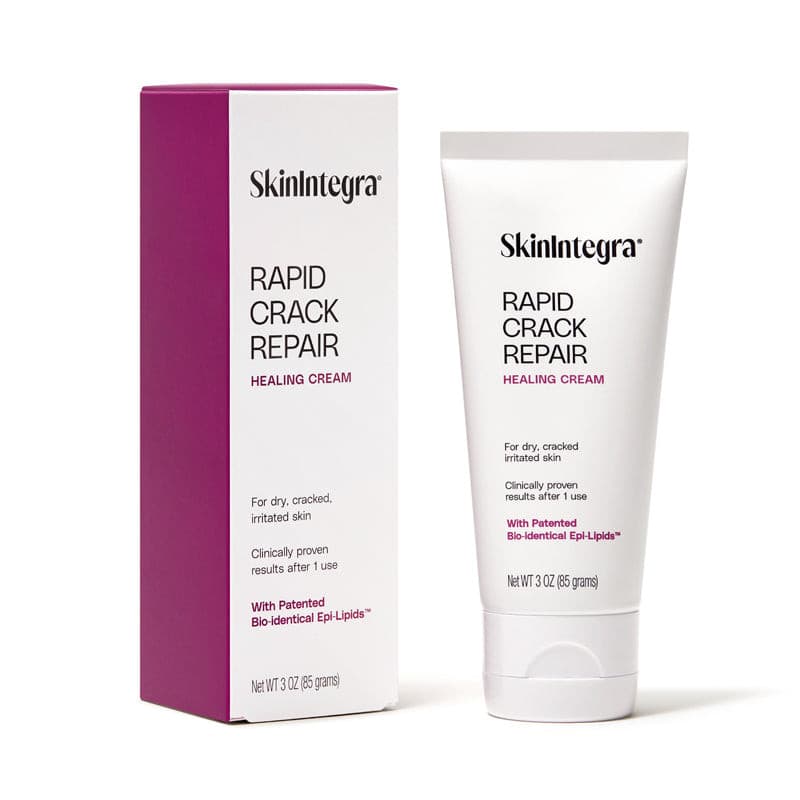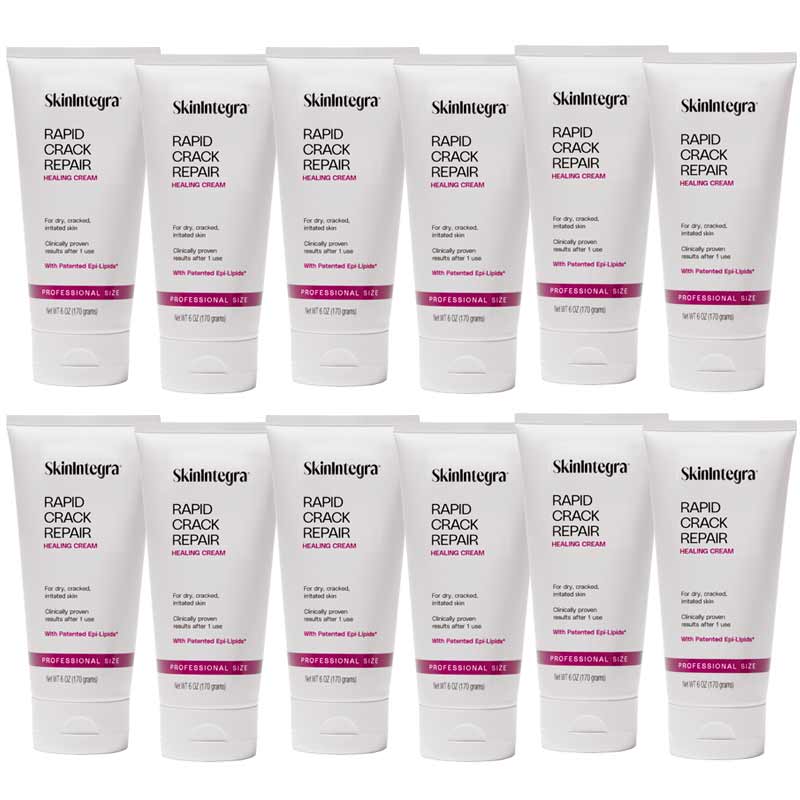
Most people will experience some sort of skin issue at some point in their lives. From common skin problems like acne to eczema and psoriasis, there's no doubt that skin problems can cause a great deal of discomfort. Most skin conditions are caused by various issues such as allergies, genetics, environmental factors, underlying skin issues, or even just stress.
While some skin conditions are nothing more than a nuisance, others can be quite serious and even lead to health complications if left untreated. That's why it's important to be aware of the different types of chronic skin conditions and how to treat them. So, if you're wondering how to repair damaged skin on your face or body, read on for some helpful tips.
1. Psoriasis
Psoriasis is a common skin problem that causes red, inflamed patches of skin to form on the body. The patches can be itchy and sore, and they often have a silver or white scale on top. There is no known cure for psoriasis, but there are treatments that can help control the symptoms. Some people find relief by using topical creams and oils, moisturizers, and UV light therapy.
How to take care of your skin if you have psoriasis:
- Gently cleanse your skin with a mild soap or cleanser and lukewarm water.
- Avoid scrubbing or using harsh chemicals, which can irritate the skin.
- Apply a moisturizer immediately after bathing to help lock in moisture and soothe the skin.
- Use a topical cream or ointment to relieve itching and inflammation associated with this common skin problem. Be sure to follow the directions on the label carefully.
- See a doctor for an accurate diagnosis and treatment plan if your symptoms are severe.
2. Eczema
Eczema is a chronic skin condition that causes the skin to become dry, itchy, and inflamed. It typically affects the hands, feet, elbows, and knees, but it can occur anywhere on the body. While it doesn't have a cure, eczema can be managed with the help of moisturizers, anti-itch creams, and topical ointments to control inflammation and treat any infectious causes.
How to take care of your skin if you have eczema:
- Apply a moisturizer immediately after bathing to help lock in moisture.
- Use a mild soap or cleanser and lukewarm water to avoid irritating the skin.
- Avoid scratching the affected areas to prevent further irritation.
- Apply a topical cream or ointment to relieve inflammation, itching, and redness.
3. Acne
Acne is a very common skin problem that affects up to 80% of people at some point in their lives. No wonder concerns about how to repair damaged skin on your face and how to get rid of acne scars are all too common on online searches. Acne causes blackheads, whiteheads, pimples, and cysts on the face, neck, chest, back, and shoulders. This results in inflammation, redness, and scarring.
Most people with chronic acne issues have confidence and self-esteem problems. While there is no actual treatment, acne can be managed with over-the-counter or prescription medications, depending on the severity of the condition. Topical creams and gels, oral antibiotics, and laser therapy are some common treatments for this common skin problem and its symptoms. Be sure to speak with a doctor before starting any medication to ensure it's safe for you.
How to take care of your skin if you have acne:
- Gently cleanse the affected areas with a mild soap or cleanser and lukewarm water twice daily.
- Avoid scrubbing or using harsh chemicals, which can irritate the skin.
- Apply a light, non-greasy moisturizer to help keep the skin hydrated.
- Use a topical cream or gel to spot-treat pimples and help prevent new ones from forming.
- See a doctor if your acne is severe or doesn't respond to over-the-counter treatments. They can prescribe antibiotics or other medications to help clear up your skin.
4. Rosacea
Rosacea is a chronic common skin problem that causes redness on the face, especially around the nose and cheeks. It can also cause swelling and bumps to form on the skin. There is no known cure for rosacea, but there are treatments that can help control the symptoms. Rosacea can be a frustrating condition to deal with, but some people find relief by using topical medications (corticosteroids) or oral medications (antibiotics).
How to take care of your skin if you have rosacea:
- Avoid triggers that can cause flare-ups, such as sunlight, spicy foods, and alcohol.
- Use a gentle cleanser to wash your face. Avoid scrubbing or using harsh chemicals on your skin.
- Apply a moisturizer to help soothe your skin.
- Use makeup that is noncomedogenic (won't clog pores) and doesn't contain irritants.
- See a dermatologist for advice on solutions that can help control symptoms of this chronic common skin problem.
5. Contact Dermatitis
This is a common condition caused by an allergy or irritation from something that has come into contact with the skin. The most common symptom is a rash, which can be itchy, red, and blistered on your face or other part of your body. If you’re wondering how to repair damaged skin on your face caused by contact dermatitis, try to identify what might have caused the reaction and avoid coming into contact with it in the future.
Here's how to deal with contact dermatitis:
- If you know what caused the rash, avoid coming into contact with it.
- Apply a cool compress to the affected area to ease pain and itching.
- Take an over-the-counter antihistamine to reduce swelling and itchiness.
- Put a thick layer of moisturizer on the affected area to protect the skin.
- Avoid scratching the affected area, as this can cause further irritation and lead to infection.
- Keep the affected area clean and dry.
- If the rash is severe, see a doctor or dermatologist for treatment. They may prescribe a corticosteroid cream or ointment to reduce inflammation.
6. Xerosis

Xerosis is the medical term for dry skin. A number of things can cause this common skin problem, including weather, contact with harsh chemicals, sun damage, harsh soaps, overbathing, swimming in pools with excess chlorine, and underlying diseases such as Diabetes. Common symptoms of Xerosis include itchiness, redness, flakiness or scaliness, cracks in the skin, and a burning sensation.
Xerosis is usually managed with over-the-counter moisturizers, but if your skin is particularly dry, especially during fall and winter, you may need something more. Some natural remedies for Xerosis include using oils, such as coconut oil, olive oil, or jojoba oil, to moisturize the skin. You can also try using a humidifier in your home to add moisture to the air and prevent your skin from drying out.
How to repair damaged skin on your face or body if you have this common skin problem:
- Use a gentle, fragrance-free cleanser.
- Apply a moisturizer immediately after bathing.
- Use a humidifier to add moisture to the air.
- Take shorter showers and baths in lukewarm water.
- Avoid harsh soaps, detergents, and solvents.
- Wear gloves when cleaning or using harsh chemicals.
- Apply a lip balm or cream to protect your lips.
- Drink plenty of fluids to stay hydrated.
Repair Your Skin With Breakthrough Natural Skin Care Products
Dealing with hard-to-treat skin conditions can be frustrating. You've probably tried every over-the-counter product available to treat most of these common skin problems with no relief. If you're looking for something different, consider using breakthrough natural skin care products from SkinIntegra, which specializes in providing revolutionary fast-acting healing treatments for the most resistant skin conditions.
- Try their Rapid Crack Repair Cream formulated to quickly repair and heal deep cracks on the hands, feet, and elbows. This cream is also effective in treating fissures, acne, eczema, psoriasis, and dermatitis.
- For those with sensitive skin, their Ultra Nourishing Oil For Body & Face is perfect for dry, itchy skin. Made with a blend of natural ingredients like shea butter, avocado oil, and jojoba oil, this product will leave your skin feeling soft and silky without irritation.
Skinintegra's first-aid skin care products are safe to use and effective for common skin problems. Want to learn more on how to repair damaged skin on your face or body? Read our skin repair tips.





